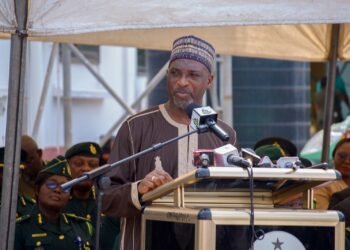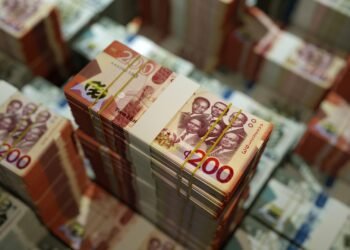From perceived failure of political systems or representation, inequality, corruption and the lack of action over critical areas of lives of citizens, the need to demand what’s rightfully theirs is never a smooth sailing venture – in such circumstance, a protest is usually the first port of call.
Policymakers and governments most often than not do not respond adequately to the demands of the people they are meant to govern, always operating from the stance of knowing what’s best for the people.
Among the genuine reasons given by citizens, too many leaders in government and business are not listening. Hence, protest for good jobs, security, better living conditions, working systems that cushions people’s efforts and hard work and a meaningful say in the decisions that affect their quality of life always takes center stage.
Protests are not a new phenomenon particularly in Ghana. In 1995, under the rule of President Jerry John Rawlings, the economy was struggling and many Ghanaians were unhappy with his government.
The bone of contention was the introduction of VAT in 1994 which most Ghanaians kicked against and regarded as unfair and in response to the growing public agitation, a group of Ghanaian activists organized a series of demonstrations against the government, codenamed “Kume Preko” protests.
Ironically, one of the leaders of the Kume Preko protests is Ghana’s current President Nana Addo Dankwa Akufo-Addo, who was then a lawyer and human rights activist. Being a devoted critic of the Rawlings government, he was arrested and imprisoned several times for his political activities.
Fast forward several years down the line, one would have though that the tolerance level of the President, and his reaction to the struggles and hardship endured by the people will strike a friendly chord.
However, under his governance, social activists, CSOs and opposition parties who have one way or the other sought to protest the increasing level of hardship, corruption and mismanagement of resources have come under a steel thumb and oppression.
In recent weeks, the country has been confronted with protests from the minority’s Occupy BoG protest, which had to be suspended and moved to October 3 after the Ghana Police Service failed to mark out safety zones for the protest.
Following suit was the notorious FixTheCountry Movement with its OccupyJulorbi House demonstration, to among other things, protest the living conditions of Ghanaians and educate citizens on their rights and constitutional obligations.
As it is with most protests, the incumbent government has been accused of clandestinely muzzling any form of protest through the agency of the Ghana Police Service, which initially frustrated the efforts of the Minority’s Occupy BoG protest and now the OccupyJulorbi House.
Convener of the FixTheCountry Movement, Oliver Barker-Vormawor, reacting to the incident stated that “when abuse of power is loudest, citizens must speak more”. In effect, despite the injunction application filed by the police after informing it of the planned demo only to be met with a rejection, that did not stop the group from asserting their rights albeit they were arrested on the first day.
Legalities on injunctions, resolving economic crisis
Change is Justice, not only inevitable. While the impact and influence of protests and demonstrations continue to grow, this is met with a wave of aggressive legislative restrictions, policies and responses designed to limit their effectiveness.
Various legal representatives have had their fair bite of the legalities surrounding the three-day protest organised by the Democracy Hub movement.
Lawyer and Director of Legal Affairs for the governing New Patriotic Party (NPP), Gary Nimako Marfo, stated that the organisers of the #OccupyJulorbiHouse protest, Democracy Hub must respect the law.
He noted that he “would not sit here and say that anybody has been manhandled and so I am endorsing it. No. My concern is that the organizers also ought to respect the law. Because I don’t understand why if an application has been served on you seeking to halt the activity, you go on with that activity”.
According to him, although the law permits the holding of demonstrations, there are also other bodies that regulate how the demonstrations must be done.
The national youth wing of the governing New Patriotic Party (NPP) equally dismissed the three-day protest organized by the pressure group. Its Youth Organiser of the NPP, Salam Mustapha stated that he “tried so hard in the 3 days of the protest to take home the most salient reason and demand for the protest, but nothing concrete. Except for the usual rhetoric of fix the road, motorway, cost of living and other tangentials, which borders on politics”.
While it is easy to quickly disregard the plight of citizens when in power, the key takeaway from all this must be for a change in governance, not only in tolerance of views different from governments, but also an improvement in the lives of people – that’s all what the people are asking for.
According to the Global Peace Index, Ghana lost its place as the most peaceful country in West Africa to Sierra Leone and also slipped as the second most peaceful country in Africa to 4th position. This may very well be the case for a long time until governments both present and ones to come realize that the concerns of its people, which are legitimate, are not only heard but resolved.
READ ALSO: FixTheCountry Convener Vows To Release Audio On Bribery By National Security



















